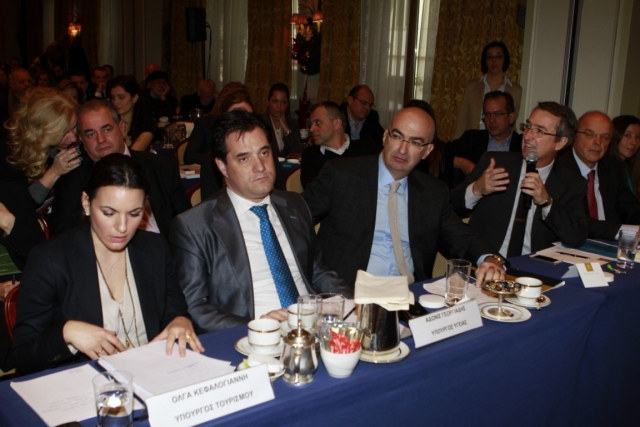Anastasia Balezdrova
Greece is preparing to receive its first medical tourists in 2014. The idea was launched by the Hellenic Chamber of Hotels and representatives of the healthcare sector a year ago and is now about to be realized. The expected revenues will amount to 400 million euro per year with the potential to increase five times over the next 10 years.
The Greek government has taken to heart this new form of tourism, which is expected to give new impetus to the economy since it will extend the tourist season throughout the calendar year. In this regard, Minister of Tourism Olga Kefalogianni and Minister of Health Adonis Georgiadis have signed a joint decision, which defines the minimum requirements to be met by those wishing to provide services to medical tourists.
"Greece has a comprehensive tourism product, so the first tourists of this kind will be people who already know the country as a tourist destination," said the Minister of Tourism, adding that those employed in the provision of all types of services must be experts in their field and work in the most responsible way in order to succeed in this market.
"Greek doctors have the reputation of very good specialists abroad, our country is a wonderful tourist destination and if these two things are combined with quality tourism infrastructure and good prices, the efforts will be successful," said in turn Minister of Health Adonis Georgiadis. At the same time, however, he warns, "The only thing we should not allow is the participation of non-professionals, who will try to profit. One mistake in the case of a patient, medical tourist, is sufficient to ruin the efforts of all."

The Minister said that all those who are interested in providing services to this type of tourists would have to meet international quality standards as a result of which they would receive a relevant certificate. Adonis Georgiadis said that the Ministry's efforts to promote medical tourism would be permanent. He announced that in February he would submit for a vote in parliament a regulation, which will incorporate haemodialysis and measures for the modernisation of spa tourism in the services of medical tourism.
President of the Hellenic Chamber of Hotels George Tsakiris announced that, within the preparation activities, a map of all public and private hospitals and clinics, rehabilitation centres, medical centres, in vitro fertilisation centres and all other sites providing health services in all villages and areas had been drawn up. The map will be published on the websites of the representatives of the specific industry and, within a few months, it will be available as an application for tablets, computers and smartphones.
All those employed in medical tourism are to be entered in a register of companies that provide health services. The Greek council for medical tourism has also created a map with 2,626 hotels in the country.
"34% of medical tourists choose where they will undergo treatment or recovery procedures with the help of an agency and 66% establish direct contact with the hospital or clinic. Therefore it is necessary for the applicants to receive an immediate reply to their inquiry," said Maria Georga, regional manager for Greece, Cyprus, Israel, Croatia and Ukraine of Treatment Abroad.
"The key factors in the choice of tourists are the price, the quality of the clinic and the quality of the services. Studies show that if they are satisfied, 89% of them recommend the place to friends and family and 90% say they will return to the specific facility. At the same time, we must bear in mind the fact that 84% of them travel with at least one family member or companion, who can use all the tourist services offered," she added. Her advice to the Greek tourism industry was that it should be in contact with the patients and medical tourists after their treatment. In her opinion, the EU Directive on cross-border healthcare, which is to be enforced by the EU member states, will provide even greater opportunities for the development of medical tourism.